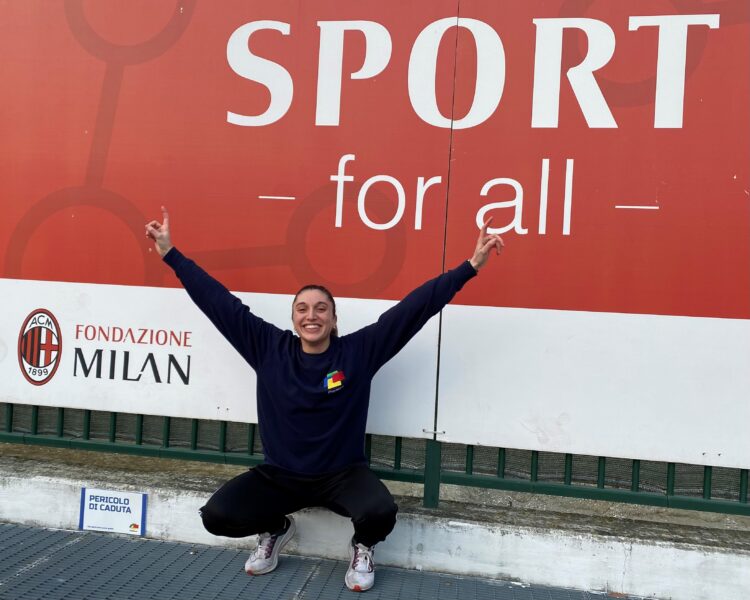
My name is Gaia, I am 23 years old and I am a student in the Professional Education degree course at the University of Milan. I started attending PlayMore! thanks to the two children I am babysitting, who have been attending the sports centre for years; in May 2020 I took part in the RunChallenge project and, thanks to the stories of the children, educators and volunteers, I was able to find out about the various social projects undertaken by the organisation. The Sport for All courses, promoted by the Fondazione Milan, are integrated courses, i.e. they are open to everyone, especially people with intellectual, relational or physical disabilities. The young people take part in individual, pair or group activities with the aim of promoting sports activities practised in mixed groups, by sportsmen and women with and without disabilities, in order to encourage social integration.
When I was contacted by the project manager I felt a series of mixed emotions: on the one hand I was delighted to enter the extraordinary world of Sport for All courses but on the other hand I was very afraid of what he might ask of me; I thought I was not up to the role or did not have the appropriate skills. I managed to put my worries aside and embarked on this new path. Yes, because it is definitely a path where, if you are willing, you have the opportunity to meet friends and come into contact with different ideas, thoughts and working methods that can not only enrich your knowledge, but can show you the world from a different perspective.
Although I had been attending the sports centre for several months, I had never had the opportunity to attend Sport for All’s MultiSport course and I must admit that the first time was a truly unique experience. It was 5 p.m. on a Friday in September and I had been asked to observe the lesson, the activity and the working method of the course instructors; from the beginning, however, it was a participatory observation, thanks to which I was able to take part in the group and start to get to know the children and my colleagues. I had never had any experience of working with people with physical and intellectual disabilities, especially with children with pervasive developmental disorders, and, like any first time, I had to learn everything from the beginning.
If an eight-year-old is told to ‘jump through the hoop’, he is very likely to carry out the command without too much difficulty; for our children, however, it is not so simple. In addition to verbal communication, which must be engaging but also very simple, they must be shown the exercise and guided through the activity. For most children, it is easier to copy a gesture than to perform it on the basis of the interpretation of words. Moreover, the beauty of a group is that it is extremely stimulating: everyone is spurred on by the companion next to them or the friend without disabilities who drags them to do the activity. What is ordinary communication has to be transformed: sentences have to be full of enthusiasm and similarities, not very articulate and easily understood. It is not easy because, being professionals and dealing most of the time with adults or young people without disabilities, in those two hours a week we have to become children again and speak their language if we want to have their attention. Perhaps this is the key to being able to do our job well: to capture their interest and establish a relationship of trust.
In these months of working on Sport for All courses, I have realised that there are no dis-abilities (without abilities), but many children with different abilities which, if made available to the group, generate an immense wealth of experience, knowledge and skills.
You too can support Fondazione Milan’s programmes, let’s continue to guarantee together the sports practice of children and young people who attend centres like Playmore!
JOIN THE TEAM!
A small gesture is enough to contribute to the realization of projects in support of the most fragile and marginalized children.